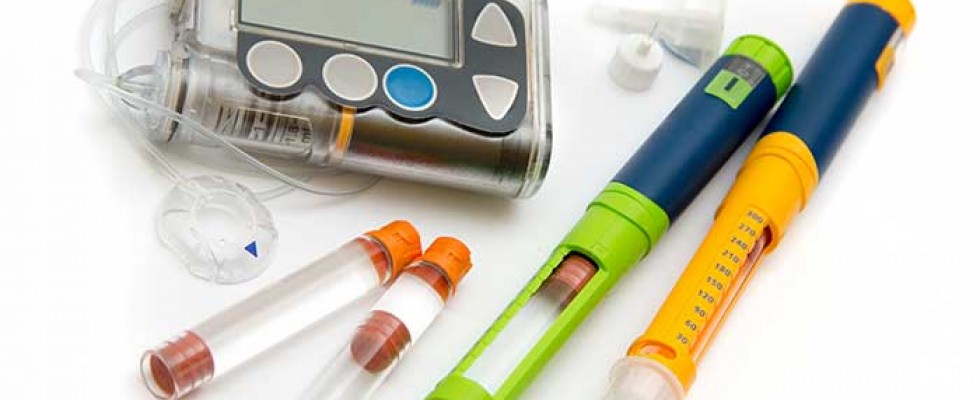
A look at CMS’s recommendations for providers
Monday, October 21, 2019
In July, 2019, the Centers for Medicare & Medicaid Services (CMS) issued compliance tips for durable medical equipment (DME) suppliers, physicians and other practitioners who write prescriptions for glucose monitors and diabetic accessories or supplies. In its tips, CMS noted the high improper payment rate for glucose monitors—45.6%, with a rejected improper payment amount of $78.8 million.
With respect to glucose monitors, insufficient documentation, no documentation, incorrect coding and lack of medical necessity were the most cited errors. With respect to diabetic testing strips, frequent denials were due to: claims without a documented diagnosis code for diabetes; claims that overlapped with an inpatient hospital stay; and claims that overlapped with a skilled nursing facility stay.
Here are the agency’s recommendations:
Home Blood Glucose Monitors
To be eligible for coverage of home blood glucose monitors (BGM) and related accessories and supplies, the beneficiary must meet both of the following basic criteria:- The beneficiary has diabetes (reference the ICD-10 codes that support medical necessity section for applicable diagnoses in LCD L33822).
- The beneficiary’s physician concludes that the beneficiary (or the beneficiary’s caregiver) has sufficient training using the particular device prescribed as shown by providing a prescription for the appropriate supplies and frequency of blood glucose testing.
Usual Utilization
For a beneficiary who is not currently being treated with insulin injections, up to 100 test strips and up to 100 lancets every three months are covered if the basic coverage criteria (numbers 1 and 2 above) are met. For a beneficiary who is currently being treated with insulin injections, up to 300 test strips and up to 300 lancets every three months are covered if the basic coverage criteria are met.High Utilization
For a beneficiary who is not currently being treated with insulin injections, more than 100 test strips and more than 100 lancets every three months are covered if criteria a through c below are met. For a beneficiary who is currently being treated with insulin injections, more than 300 test strips and more than 300 lancets every three months are covered if these criteria are met: a. The basic coverage criteria listed above for all BGMs and related accessories and supplies are met. b. Within the six months prior to ordering quantities of strips and lancets that exceed the utilization guidelines, the treating practitioner has had an in-person visit with the beneficiary to evaluate their diabetes control and their need for the specific quantity of supplies exceeding the usual utilization amounts above. c. Every six months, for continued dispensing of quantities of testing supplies that exceed the usual utilization amounts, the treating practitioner must verify adherence to the high utilization testing regimen. If basic coverage criterion 1 or 2 is not met, all testing supplies will be denied as not reasonable and necessary. If quantities of test strips or lancets that exceed the utilization guidelines are provided and criteria a, b or c are not met, the amount in excess will be denied as not reasonable and necessary.Continuous Glucose Monitors
Continuous Glucose Monitors (CGMs) covered by Medicare under the DME benefit are defined in CMS-Ruling 1682-R as therapeutic CGM. When a CGM device does not meet the definition of a therapeutic CGM, as defined in CMS Ruling 1682R, Medicare denies the devices as non-covered (no benefit). Medicare covers therapeutic CGMs and related supplies when you meet all of the following coverage criteria:- The beneficiary has diabetes mellitus (reference the ICD-10 codes that support medical necessity section for applicable diagnoses in LCD L33822).
- The beneficiary uses a BGM and performs testing four or more times a day.
- The beneficiary is insulin-treated with three or more daily injections of insulin or a Medicare-covered continuous subcutaneous insulin infusion pump.
- The beneficiary’s insulin treatment regimen requires frequent adjustment by the beneficiary on the basis of their BGM or CGM testing results.
- Within six months prior to ordering the CGM, the treating practitioner has an in-person visit with the beneficiary to evaluate their diabetes control and determined that criteria 1 through 4 listed above are met.
- Every six months following the initial prescription of the CGM, the treating practitioner has an in-person visit with the beneficiary to assess adherence to their CGM regimen and diabetes treatment plan.
Markus P. Cicka, J.D., LL.M. (Health Law), is an attorney with the Health Care Group at Brown & Fortunato, P.C., a law firm based in Amarillo, Texas. Cicka is based in St. Louis, Missouri. He represents home health agencies, pharmacies, infusion companies, home medical equipment companies, and other health care providers throughout the United States. He can be reached at (806) 345-6366 or mcicka@bf-law.com.
